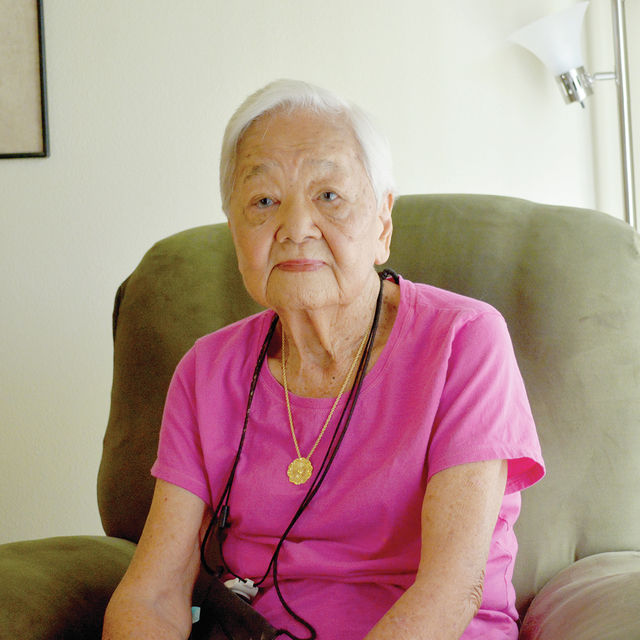LIHUE — Chito Isonaga was at church on Dec. 6, 1941, on Kauai when she learned Pearl Harbor was under attack by Japanese planes. A first generation Japanese American with roots in Hiroshima, she was 26. The war carved out
LIHUE — Chito Isonaga was at church on Dec. 6, 1941, on Kauai when she learned Pearl Harbor was under attack by Japanese planes.
A first generation Japanese American with roots in Hiroshima, she was 26.
The war carved out a career for Isonaga, a skillful Japanese and English translator. It later brought her back to Hiroshima, where she studied Japanese language for six years after graduating from Kauai High School.
Early on in the war, Isonaga was recruited at the Office of Censorship in Honolulu where she scoured letters to Japanese internees for compromising passages. Then one day she walked across the street from the office and volunteered for the Women’s Army Corps. The Koloa-born bilinguist became one of the first women other than nurses to serve in the Army’s ranks.
“I wanted to help my schoolmates (in Japan),” said Isonaga, now 99. “I sort of figured that America was going to win the war and Japan would be the loser.”
The military took Isonaga to the nation’s capital and later Minnesota, where she attended Military Intelligence Service language school at Fort Snelling.
When Japan surrendered in 1945, she was sent there as part of the occupation forces.
Soon after her arrival in Japan, Gen. Douglas MacArthur discharged the WACs, giving members a choice to stay in Japan or return home. Isonaga chose to stay.
Her family in Hiroshima had survived the atomic bomb because when it dropped they had been on a visit to the countryside. She wanted to help them. So she used her commissary to buy clothing and other basics that she gifted to them.
Later, she built a small home for her aunt who housed her when she studied Japanese language in Hiroshima as a youth. Her aunt’s former home had been destroyed by the bombing.
Isonaga worked for the Central Intelligence Agency for many years during its post-war effort before returning home to Hawaii in 1975.
Today Isonaga lives at an assisted living facility in Lihue where she entertains visits from family and plays Japanese Mahjong with the other residents.
In October she will celebrate her 100th birthday.



